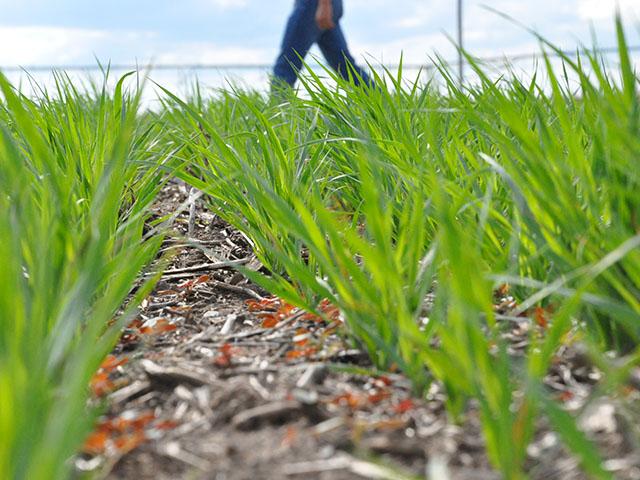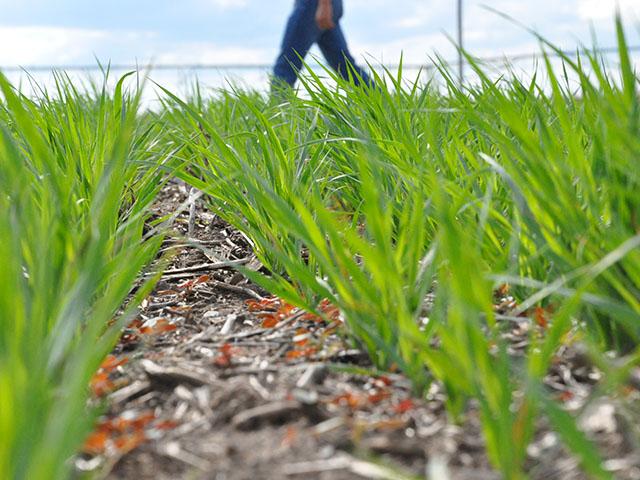Ethanol Blog
Biofuels Groups Call Out Latest Proposed Updates to California LCFS
LINCOLN, Neb. (DTN) -- The California Air Resources Board's proposed amendments to the state's low-carbon fuel standard are drawing the ire of national biofuels groups.
Several groups offered public comments on the proposal that they say puts biofuels at a disadvantage in California.
In particular, CARB proposes an amendment to the LCFS that will require more biofuels feedstock tracking while at the same time not giving farms credit for carbon-reduction practices.
GROWTH ENERGY
In written comments, Growth Energy said the proposed amendments would make it difficult for biofuels companies to generate credits under the LCFS program.
Specifically, Growth Energy said a proposed "sustainability certification" requirement would make it "an unfair and unnecessary double penalty for corn starch bioethanol."
In particular, Growth Energy said the board was "neglecting to consider farm-level carbon reduction practices and technologies" in the proposed amendments.
In addition, the group said it was concerned about the amendments giving the executive officer of the LCFS program "unilateral discretion" on new fuel pathway applications and to modify land-use change penalties.
"The economic impact analysis (EIA) acknowledges potential direct and indirect land use change 'is at least partially (and potentially fully) accounted for by the LUC scores added to crop-derived pathways,'" Growth Energy Senior Vice President of Regulatory Affairs Chris Bliley said in the comments.
"This acknowledgement renders the need for a sustainability certification moot as potential LUC concerns for crop-based feedstocks are addressed."
Growth Energy said in a news release that farmers who produce corn and other crops used to produce biofuels would be required to use climate smart agriculture practices to qualify for the sustainability certification.
P[L1] D[0x0] M[300x250] OOP[F] ADUNIT[] T[]
"However, those same farmers would still not receive any credit for the emissions-reducing impact of deploying those practices under the LCFS," Growth Energy said in the release.
Bliley said that climate-smart ag practices are "an important component" to ethanol's continued efforts to get to net-zero.
"We urge CARB to recognize these practices and their carbon-reduction potential and allow CSA practices to be considered when determining a pathway's CI," he said in comments.
CLEAN FUELS ALLIANCE AMERICA
Clean Fuels Alliance America said in comments that if California adopted the amendments the changes would impose caps on credits for soy- and canola-based biodiesel and renewable diesel, without sufficient scientific evidence to support such limitations.
"By restricting credit generation for these low-carbon alternatives, CARB risks unfairly disadvantaging biodiesel and renewable diesel--proven solutions that reduce emissions today while supporting sustainable farming and rural economies," CFAA said in a news release.
"Limiting biodiesel and renewable diesel in favor of technologies that will not be fully scalable for many years, even by CARB's own projections, threatens both environmental progress and innovation."
The groups said biodiesel and renewable diesel have "significantly" contributed to California's emissions reductions.
According to information from CARB, last year more than 3 billion pounds of soybean oil and 1.7 billion pounds of canola oil were used in the state, with biomass-based diesel now accounting for 73% of California's diesel pool.
"These proposed amendments impose significant restrictions on vegetable oil feedstocks, hindering the ability of clean fuels to effectively decarbonize the heavy-duty transportation sector. Moreover, they introduce stricter standards for these fuels than those applied to others, including petroleum," said Jeff Earl, director of state governmental affairs at Clean Fuels.
"These changes unjustly penalize biodiesel and renewable diesel--low-carbon fuels that provide immediate health benefits for California."
RENEWABLE FUELS ASSOCIATION
The Renewable Fuels Association submitted comments calling on California regulators to allow the sale of E15 in the state.
"E15 is a critical near-term strategy for decarbonizing liquid fuels, which will continue to dominate transportation in California for years, if not decades, to come," RFA Chief Economist Scott Richman wrote in comments to the California Air Resources Board.
"From a consumer perspective, E15 offers a unique opportunity to lower the cost of gasoline while cutting emissions of greenhouse gases and criteria pollutants."
Richman pointed to a recent study that found E15 could cut 20 cents off the cost of a gallon of gasoline in California, which has the nation's highest average fuel prices. This would equate to total statewide annual savings of $2.7 billion.
The RFA also pushed back on expanded feedstock-tracking requirements for biofuels.
RFA detailed in its comments why the feedstock requirements are too much including the need to maintain boundary coordinates of farms from which feedstocks are sourced, sign attestations about the specific land on which the feedstock was produced and meet comprehensive chain-of-custody obligations.
Instead, Richman wrote in the comments, "if California moves ahead with any feedstock certification program, there should be a provision to designate all U.S.-produced ethanol as already in compliance, so long as aggregate cropland area does not expand beyond a 2007 baseline. This would be consistent with the EPA's approach under the federal Renewable Fuel Standard."
Todd Neeley can be reached at todd.neeley@dtn.com
Follow him on social platform X @DTNeeley
(c) Copyright 2024 DTN, LLC. All rights reserved.





Comments
To comment, please Log In or Join our Community .